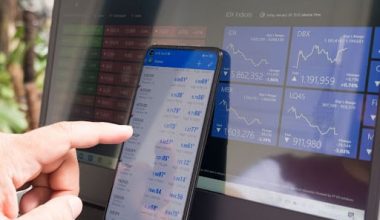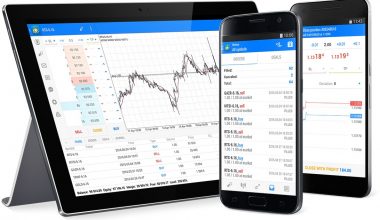Foreign Exchange, also referred to are Forex, is a global market in which businesses and institutions around the world trade currencies. It’s decentralized, meaning it doesn’t rely on banks or other financial institutions and is one of the largest markets in the world. When it comes to business FX, trading is used so that two currencies can be swapped simultaneously, so that a profit can be made from the fluctuations that come with the Forex market – which can result in a profit for the company trading. Various trading platforms mean traders have access to the Forex market 24/7, so they can use it to their advantage. Not only this, but it’s essential for companies trading on a global scale, that take part in international trade regularly. Below, we’ll take a closer look at the impact Forex has on global business as a whole.
The Impact on Global Businesses
So, what impact does Forex have on global business? As we mentioned above, Forex is essential for companies that need to trade and operate with different currencies regularly, so that trade deals can be made worldwide – this is one of the most notable impacts that Forex has on companies around the world. Here are a few more factors to consider when it comes to how Foreign Exchange keeps global trade ticking.
Importing and Exporting
Countries all over the world import and export goods all year round, and Forex has a significant part to play in this. Exchange rates have a direct impact on the cost of the goods and services coming in and out of a country. Generally, a weak domestic currency means that imports will be more expensive, and exports will be cheaper. Whereas if the domestic currency is strong, this makes imports cheaper and exports more expensive. This can have an impact on the economics of the domestic country, and traders can use this to their advantage.
International Investment
Forex has an impact on international investments. As we’ve briefly mentioned, the foreign exchange market fluctuates based on the exchange rates of a country. So, if an investor in America invests in a European company, and the euro depreciates alongside the dollar, the investor’s returns will, as a result, be lower. On the other hand, if the euro is strong against the dollar, the investor may be able to use this to his advantage. This is one way that Forex can impact international investment. Another is that it can actually make investments more appealing and can help with the diversification of an investment portfolio.
Domestic Investment
But it’s not just international investments that Forex can have an impact on, it can also directly affect domestic investment too. Forex has an impact on domestic interest rates. When the currency of a country is strong, banks are more likely to raise interest rates to prevent and keep a lid on inflation, which as a result has a knock-on effect on investors not wanting to take a chance as they may lose money. On the other hand, when a currency is weak, the central bank in the country will be more likely to cut interest rates to try and boost investment within the country. Forex can also have an impact on the capital flows of a country, how much money is coming in in terms of investment, as well as trade balance.






